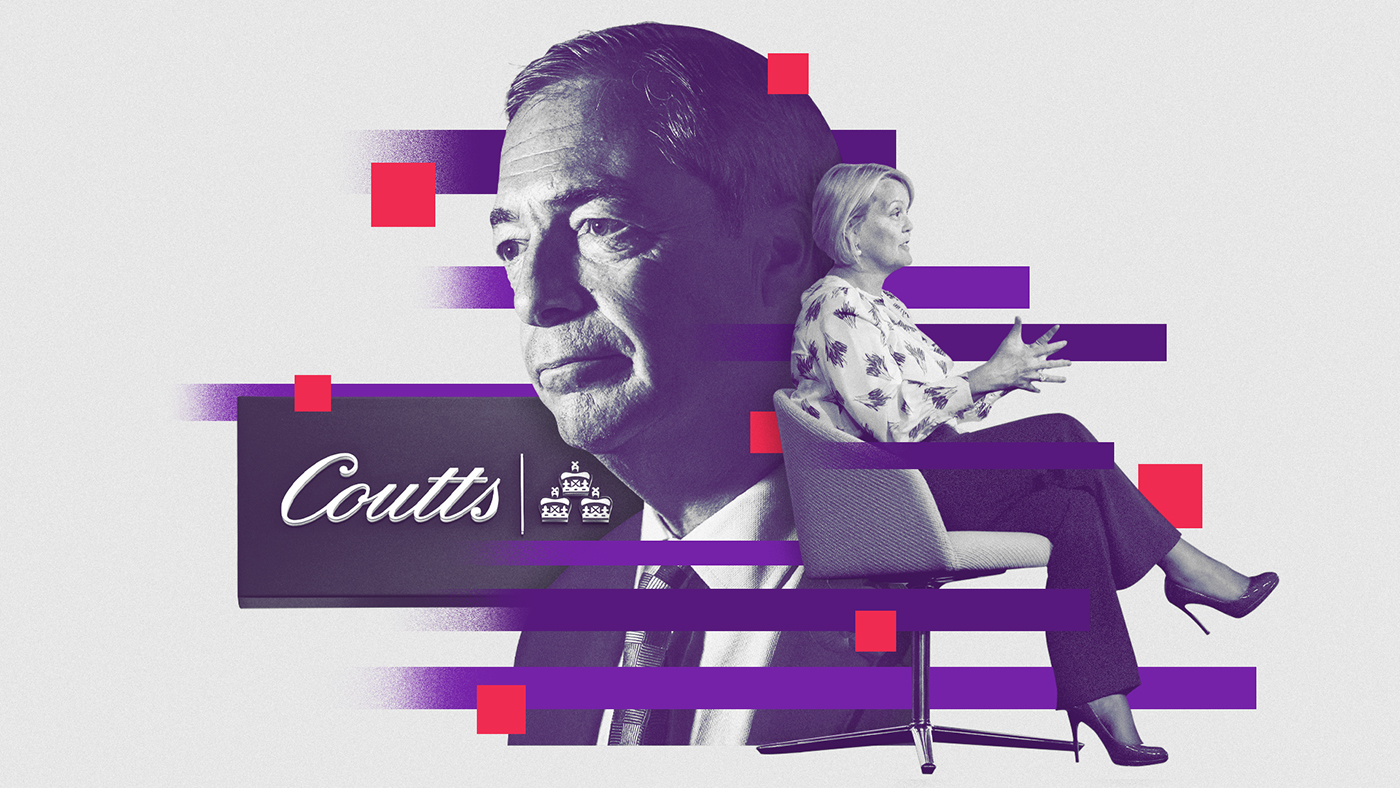Debanking row: is Nigel Farage case just tip of the iceberg?
Data watchdog warns banks over handling of sensitive data they hold on customers

A free daily email with the biggest news stories of the day – and the best features from TheWeek.com
You are now subscribed
Your newsletter sign-up was successful
UK banks are being reminded of “their responsibilities” when it comes to sensitive information they hold on their customers.
Lenders “should not be holding inaccurate information... [or] any more information than is necessary”, said the Information Commissioner’s Office (ICO), which is considering launching an inquiry into the “debanking” scandal surrounding Nigel Farage.
The UK’s data privacy watchdog was reacting to the issues raised by the former Ukip leader, who complained after having his bank account closed by Coutts. The subsequent resignation of Dame Alison Rose as CEO of NatWest, which owns Coutts, has “failed to quell the growing storm engulfing the bank”, said The Telegraph.
The Week
Escape your echo chamber. Get the facts behind the news, plus analysis from multiple perspectives.

Sign up for The Week's Free Newsletters
From our morning news briefing to a weekly Good News Newsletter, get the best of The Week delivered directly to your inbox.
From our morning news briefing to a weekly Good News Newsletter, get the best of The Week delivered directly to your inbox.
Meanwhile, Farage has said he is planning to launch a “very large database” of other “de-banked” people in the coming days. But how big is the problem?
What did the papers say?
Writing in The Telegraph, Farage said he only “decided to go public” over his dispute with Coutts because he “realised over the last couple of years that many people had wrongly had their bank account closed”.
He added that since he told his own story, he has been “inundated with tales from others in genuine distress who have also suffered the indignity of being ‘debanked’”.
The politician’s experience “may just be the tip of the debanking iceberg”, wrote Henry Williams for CapX. Noting Farage’s claim that a further 10 banks have also refused his custom, and the news that more firms are being investigated for debanking customers, Williams said this suggests the practice “may be more widespread across the banking industry”.
A free daily email with the biggest news stories of the day – and the best features from TheWeek.com
Banks have been “quietly closing accounts without giving their customers any reasonable explanation for decades”, wrote debt adviser Amy Taylor for The Guardian. She said that when this happens to “ordinary people” they “don’t get the prime minister hollering for justice”, and “certainly don’t get apologies from CEOs”.
“Make no mistake”, wrote Lauren Smith for Spiked, “banks and building societies are increasingly engaged in a culture war against their own customers” and are “targeting those who hold what they deem to be the wrong views”.
However, “it’s not just banks’ wokeness that is fuelling the phenomenon of debanking”, she suggested. Banks also refuse to serve “politically exposed persons”, such as political representatives or their family members, who can be “susceptible to bribery and corruption”.
Lloyds Banking Group’s boss focused on such cases as he insisted that the banking giant does not consider a customer’s political or personal beliefs when deciding to shut an account, noted The Independent. “Our policy is really clear,” said Charlie Nunn: Lloyds does not look at “political beliefs, or personal beliefs” but primarily looks at the risk of financial crime.
What next?
The Treasury summoned the heads of Britain’s biggest banks to explain how they intend to ensure that customers are not “de-banked” for their political views.
Nineteen lenders, including NatWest, Lloyds, HSBC and Barclays, will be asked to show how they will make sure “that customers can access payment accounts without fear of being de-banked for their lawful expression”, according to a draft of the letter seen by the Financial Times.
The hope is that the “Farage fiasco” could lead to “deeper scrutiny of our banking sector’s behaviour towards its customers”, said Taylor in The Guardian. Proposals on the table include “such cordialities as being told why your account is being closed”, and an “extension from 30 days to 90 in which to find an alternative”.
“Might this very public (and increasingly clear-cut) case set the precedent for cracking down on businesses that engage in this sort of behaviour?” asked Kate Andrews, economics editor of The Spectator.
The indefatigable Farage is certainly ready to lead the charge. In The Telegraph, he said that he is “now seriously motivated by this issue” and “will be launching, over the course of the next few days, an exercise designed to gather together all of those that have been de-banked”.
He is “hoping to build a very large database of cases to find out which banks are the worst offenders and what the commonest reasons are, so that we can prepare and present a lobby to ministers, and to Parliament, in order to achieve fundamental change.”
Chas Newkey-Burden has been part of The Week Digital team for more than a decade and a journalist for 25 years, starting out on the irreverent football weekly 90 Minutes, before moving to lifestyle magazines Loaded and Attitude. He was a columnist for The Big Issue and landed a world exclusive with David Beckham that became the weekly magazine’s bestselling issue. He now writes regularly for The Guardian, The Telegraph, The Independent, Metro, FourFourTwo and the i new site. He is also the author of a number of non-fiction books.